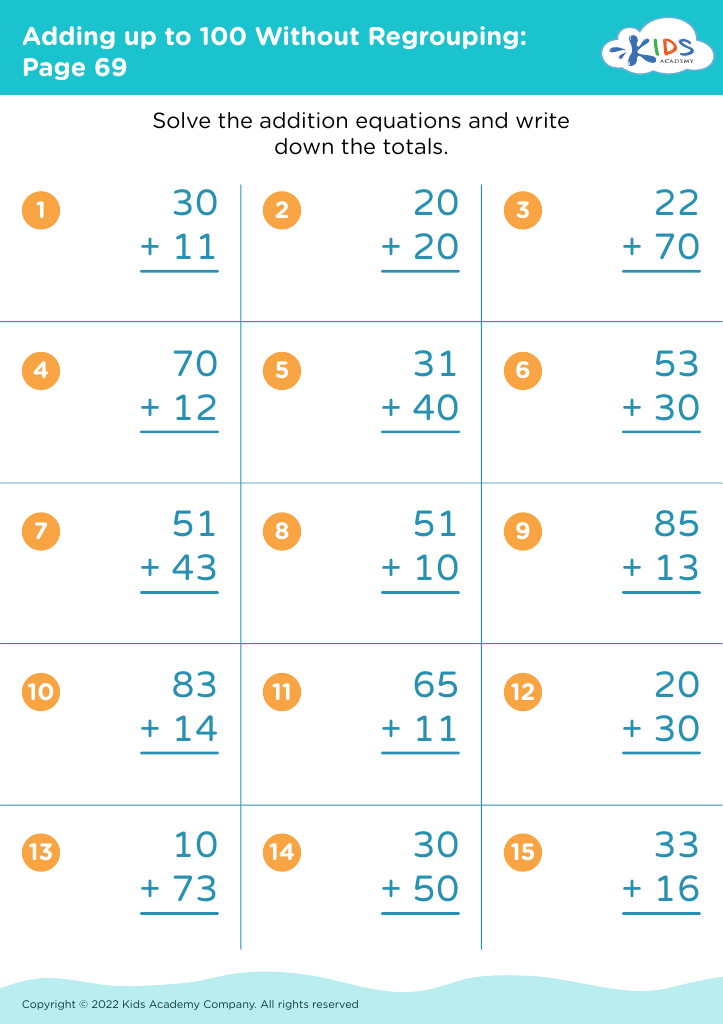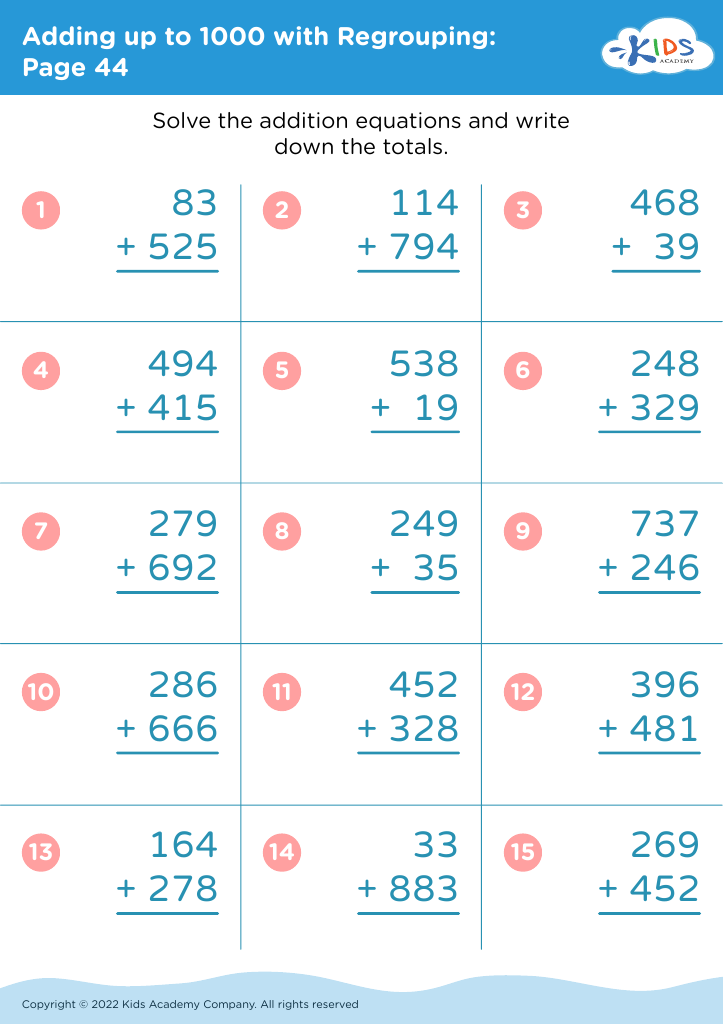Enhance problem-solving abilities Addition Worksheets for Ages 3-8
5 filtered results
-
From - To
Discover our "Enhance Problem-Solving Abilities Addition Worksheets," designed for children aged 3 to 8. These engaging worksheets foster essential math skills while promoting critical thinking and problem-solving abilities. With a variety of interactive activities ranging from basic addition to fun puzzles, kids will enjoy learning while building their numerical confidence. Each worksheet is crafted to provide age-appropriate challenges that encourage exploration and creativity in math. Perfect for homeschooling or supplemental practice, our resources make learning addition entertaining and effective. Equip your child with foundational skills that will benefit them in their academic journey. Explore our selection today and watch them shine!
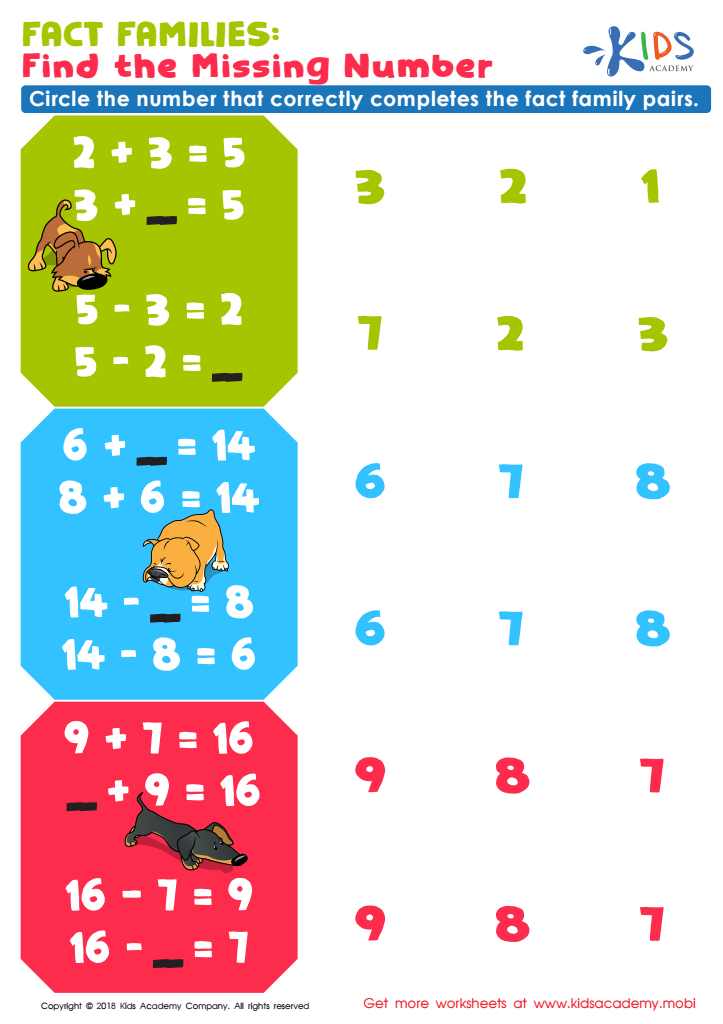

Fact Families: Find Missing Number Worksheet
Enhancing problem-solving abilities in addition for children ages 3-8 is crucial for their overall development and lifelong learning. At this stage, kids are not just developing numerical skills; they are also cultivating critical thinking, reasoning, and analytical abilities. By focusing on addition, children learn to recognize patterns, make connections, and approach challenges systematically.
For parents and teachers, fostering these skills benefits children academically and socially. When children grasp the concept of addition, they gain confidence in handling more complex math tasks, thereby laying a strong foundation for future learning. This competence not only enhances their performance in school but also nurtures a positive attitude toward math, which can reduce math anxiety later in life.
Additionally, problem-solving is a vital life skill that extends beyond mathematics. It encourages students to navigate conflicts, make informed decisions, and develop resilience. By guiding young learners through challenges, adults play a critical role in helping them become adept problem solvers who can tackle a variety of situations with creativity and logic. Ultimately, investing in early problem-solving skills equips children with the necessary tools to thrive in academic settings and everyday life, promoting their success as they grow.
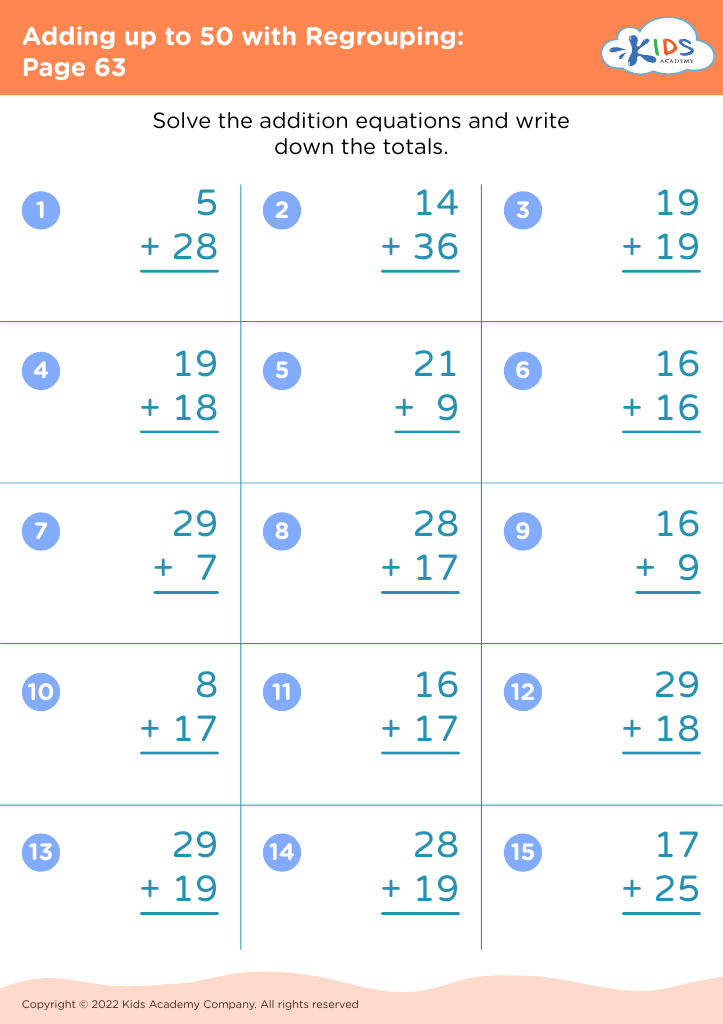
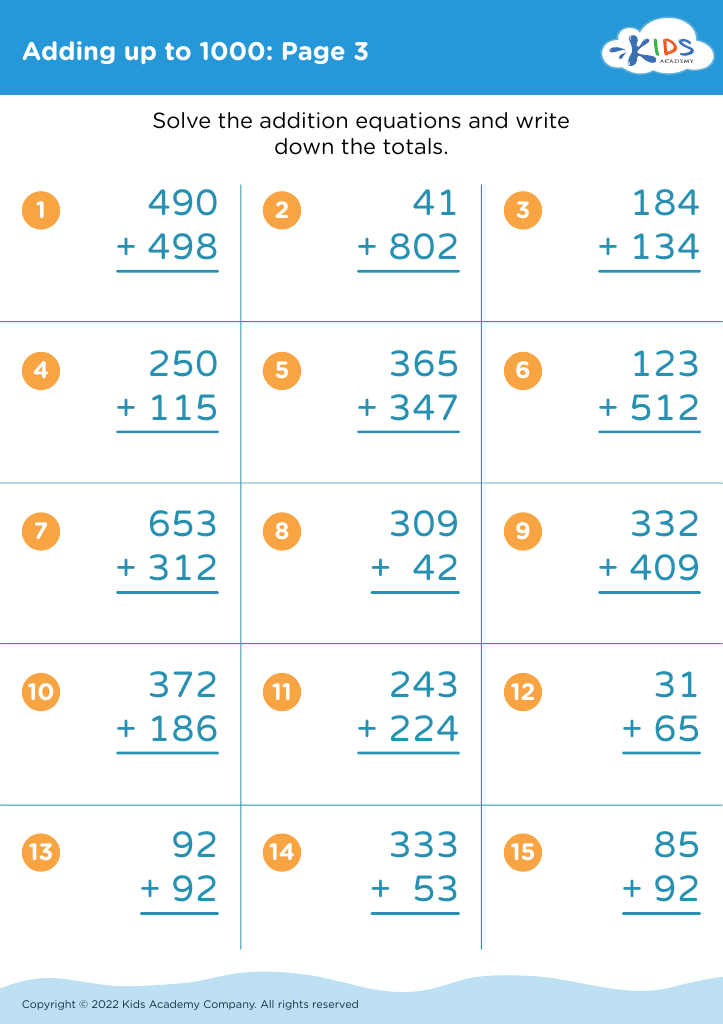
 Assign to My Students
Assign to My Students
